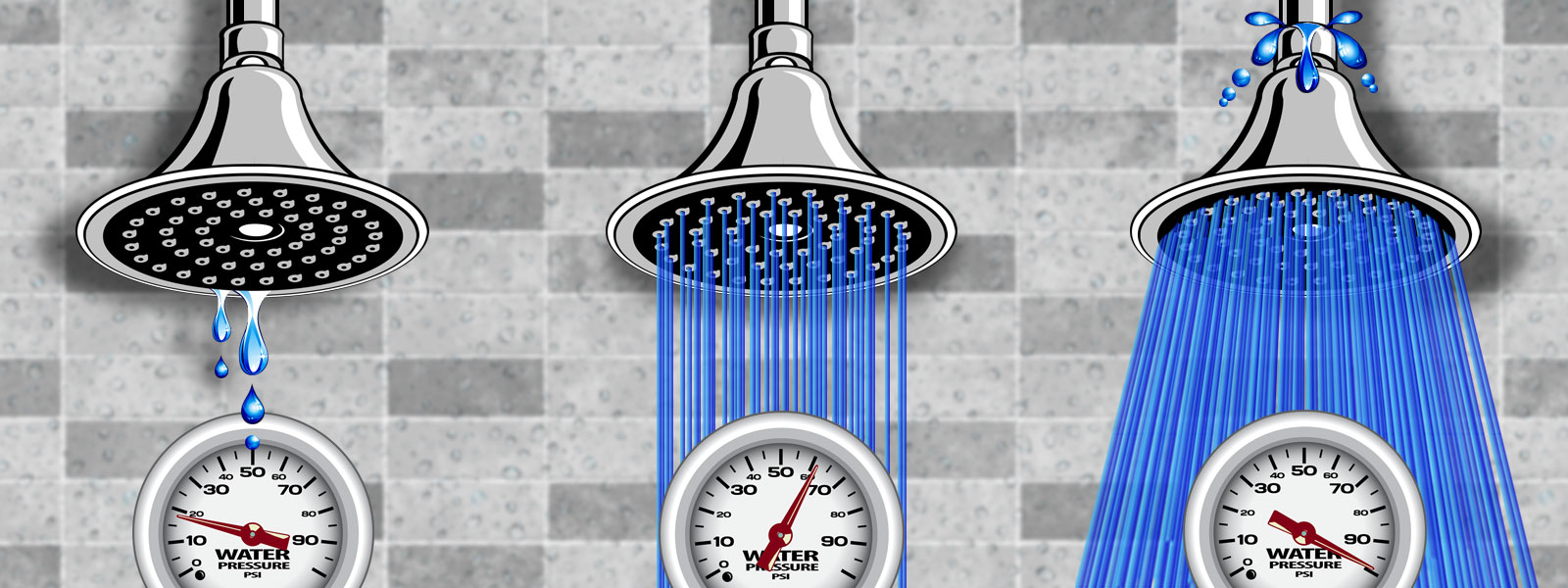Have you recently experienced a dip in your water pressure? Low water pressure makes everyday tasks more challenging to accomplish. Not only will it take forever to fill up your mop bucket, but taking a shower can be an even more prolonged ordeal with low water pressure.
If you have water pressure issues, here are a few reasons why your pressure might decrease and what you can do to fix the problem!
5 Causes of Low Water Pressure
Check these common causes of low water pressure before you call a local plumber for help.
1. Problems with the Shut-Off Valve
Look at the main shut-off valve for your water. It is found where the main water pipe enters your home. If the level handle is tampered with, it can limit your water flow. Be sure that the wheel is twisted all the way open and the handle is parallel to the pipe.
2. Water Softener Issues
Problems with your water softener can impact your water pressure. Check that your water softener is working correctly. An improperly functioning water softener can cause an increase or decrease in water pressure. If there’s a problem with your water softener, you’ll need to call a professional plumber for help.
3. Clogged Aerator
If your low water pressure is contained to a single faucet, you might have a clogged aerator. Aerators are the tiny screen at the end of your faucet. Over time, they can rust or get clogged with buildup and debris. In most cases, you can unscrew the screen, clean the aerator, and reattach it. If your aerator is rusted, you may need to replace it.
4. Mineral Buildup
As your plumbing system ages, you can experience a buildup of minerals and other sediments, reducing the water flow to your home. When the mineral buildup is the cause of low water pressure, you’ll need to contact a local plumber to replace or repair blocked or corroded pipes.
5. Faulty Pressure Regulator
Pressure regulators act as a control system for the water pressure from your service line into your home. A faulty pressure regulator can significantly impact your water pressure. If you think a defective regulator is to blame, you’ll need to contact a licensed plumber to fix the problem.
6. Cracked or Leaking Pipe
When your plumbing pipes crack or leak, your water pressure can be affected. Since low water pressure is a significant indicator of leaking pipes, it’s vital to call a professional plumber immediately if you think a leak causes your low water pressure.
7. Hot Water Heater Issues
When sediment, minerals, and debris build up in your water heater, your water pressure can slow down. Routine plumbing maintenance can help you avoid these issues. Still, you should call a plumber immediately if you think your water heater causes low water pressure. This will help you avoid more significant repairs as the buildup creates more problems with time.
Contact Rene’s Plumbing, Heating, and Cooling for Your Residential Plumbing Needs
If you have low water pressure in your home, a local plumber can help. Our licensed La Verne plumber team can determine the cause of your low water pressure and create an affordable and effective solution!
